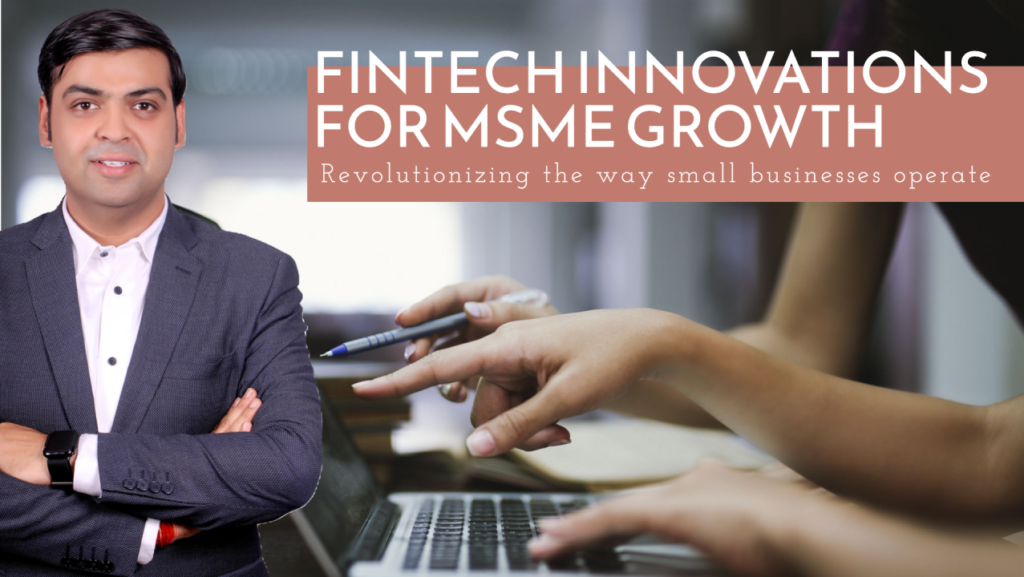
Fintech’s role in empowering Micro, Small, and Medium Enterprises (MSMEs) is set to significantly contribute to India’s goal of becoming a $5 trillion economy. The Indian fintech sector is predicted to reach $150 billion by 2025, transforming the delivery and consumption of financial services across sectors, particularly for MSMEs.
Key Contributions of Fintech to MSMEs
Credit Access
-
Traditional banks often hesitate to lend to MSMEs due to perceived risks and lack of credit history. Fintech companies address this by using alternative data sources like digital transactions, GST filings, and utility bills to assess creditworthiness.
-
Expected Growth: Digital lending is projected to reach Rs 47.4 lakh crore by 2026, providing significant opportunities for MSMEs.
Digital Payments
-
The adoption of digital payment platforms like UPI and mobile wallets has surged, simplifying transactions for MSMEs.
-
Statistics: UPI processed over 10 billion transactions in a single month in 2023, and 72% of MSME payments are now digital.
Financial Management Tools
-
Fintech solutions offer tools like invoicing and expense management software, which help MSMEs manage cash flow effectively and make better financial decisions.
Policy Support and Infrastructure
Regulatory Sandboxes
-
Established by the Reserve Bank of India (RBI), these allow fintech companies to test innovations in a controlled environment, aiding in the development of appropriate regulatory frameworks.
Digital India Investment
-
The government’s investment of Rs 14,903 crore between FY 2022 to FY 2026 aims to build digital infrastructure supporting fintech adoption.
RBI’s Payments Vision 2025
-
Aims for a threefold increase in digital payment transactions and significant growth in prepaid payment instrument transactions and card acceptance infrastructure.
Future Trends in Fintech for MSMEs
AI and Machine Learning
-
These technologies will enhance credit scoring models, fraud detection, and personalized financial services, enabling more accurate risk assessments and tailored financial products.
Decentralized Finance (DeFi)
-
DeFi platforms could provide MSMEs access to a broader range of financial services without traditional intermediaries.
Embedded Finance
-
Financial services will be integrated into non-financial platforms, simplifying access to credit, insurance, and payments within existing business workflows.
Mobile-First Economy
-
With an expected 1.1 billion smartphone users and over 850 million internet users by FY2026, India’s shift towards a mobile-centric approach will further accelerate the adoption of fintech solutions among MSMEs.
Conclusion
The integration of fintech innovations in the MSME sector is crucial for India’s economic growth. By providing tailored financial solutions, improving access to credit, and facilitating digital transactions, fintech is set to play a major role in empowering MSMEs and driving India towards its $5 trillion economy goal.




